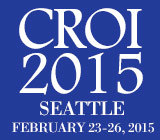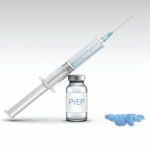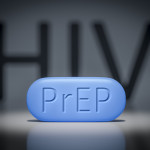 A group of British men who have sex with men (MSM) and transgender women given Truvada (tenofovir/emtricitabine) as pre-exposure prophylaxis (PrEP) had an overall 86 percent lower risk of HIV as a consequence. This is the highest population-level effectiveness of PrEP seen in a randomized study to date, and it should give ammunition to supporters of this HIV prevention method as they face any detractors who claim that prescribing Truvada to HIV-negative MSM will prove ineffective or lead to significant collateral damage.
A group of British men who have sex with men (MSM) and transgender women given Truvada (tenofovir/emtricitabine) as pre-exposure prophylaxis (PrEP) had an overall 86 percent lower risk of HIV as a consequence. This is the highest population-level effectiveness of PrEP seen in a randomized study to date, and it should give ammunition to supporters of this HIV prevention method as they face any detractors who claim that prescribing Truvada to HIV-negative MSM will prove ineffective or lead to significant collateral damage.
Begun in 2012, the PROUD study included 545 very high-risk HIV-negative MSM and transgender women at 13 sexual health clinics in the United Kingdom. A total of 276 of them were randomized to receive PrEP immediately upon entry into the study, while the remainder of the participants were set to receive PrEP a year later so that the researchers could observe them as a control group in the meantime. Researchers presented their findings of the study at the 2015 Conference on Retroviruses and Opportunistic Infections (CROI) in Seattle.
In October 2014, the study’s independent data monitoring committee recommended that the group that was supposed to receive PrEP on a deferred basis should instead receive Truvada immediately, based on an interim analysis of the study that showed high effectiveness for PrEP among the study population.
There were three new cases of HIV among the group that received PrEP immediately, for an incidence of 1.3 per 100 person-years, compared with 19 new cases in the deferred group, for an incidence of 8.9 per 100 person-years. Consequently, the researchers concluded that PrEP reduced the risk of HIV infection by 86 percent on what is known as an intent-to-treat basis. This means that giving PrEP to the population as a whole reduced the men’s overall risk of the virus by 86 percent, when compared with the overall risk of HIV among the group that received PrEP later on. If the researchers were to examine individuals’ HIV risk based on their personal adherence to Truvada, those who took the drug daily would likely have an individual rate of protection higher than 86 percent. Previous studies of MSM and transgender women have used mathematical modeling to estimate that PrEP is 99 percent or even 100 percent effective if taken every day.
That said, the men in the PROUD study appeared to have adhered to the Truvada regimen quite well. MSM in the iPrEx and iPrEx open-label extension studies did not adhere well, accounting for those studies’ lower intent-to-treat effectiveness rates of 44 percent and about 50 percent, respectively.
In a press release, Sheena McCormack, a professor of clinical epidemiology at the Medical Research Council Clinical Trials Unit at University College London, and chief investigator of the PROUD study, said that the results of her study “are extremely exciting and show PrEP is highly effective at preventing HIV infection in the real world. Concerns that PrEP would not work so well in the real world were unfounded. These results show there is a need for PrEP, and offer hope of reversing the epidemic among men who have sex with men in this country. The findings we’ve presented today are going to be invaluable in informing discussions about making PrEP available through the [U.K. National Health Service].”
PrEP is not currently approved in the United Kingdom. In fact, the United States is the only country to have approved Truvada as an HIV prevention method.
A major concern about PrEP has been that it will lead those taking Truvada to use condoms less frequently, or to take other greater risks sexually, such as by having more sexual partners. Even if Truvada could effectively neutralize these risks, or ensure that on balance individuals have less risk of HIV than they did before they started PrEP, there is still the risk of sexually transmitted infections (STIs) to consider. (A risk that may be mitigated by the twice-yearly STI screening required in the United States.)
Evidence in the PROUD study suggested that the men in the PrEP group were not using condoms less since starting on Truvada. They also did not have a greater rate of STIs, nor did they report a higher median number of partners when compared with the deferred group.
A major benefit of this study is that it showed PrEP is feasible and effective in a real-world setting. The health clinics administering the study were relatively easily able to integrate PrEP into their HIV prevention methods.
Referring to findings of multiple studies of PrEP presented at CROI, Mitchell Warren, executive director of the global HIV advocacy group AVAC, said in a press release, “Today’s results add to a powerful body of evidence that ARV-based prevention works when it is used correctly and consistently. But they’re also a reminder that with nearly every prevention option available today, from condoms to PrEP to HIV treatment, correct and consistent use is both critically important and a real challenge.”
Advertisement
Advertisement
Advertisement






Comments
Comments